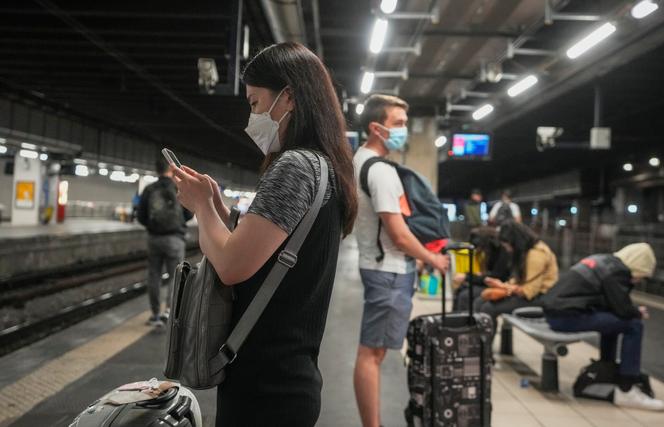


On a gray Monday in January, behind the displays at Galeries Lafayette's "Shopping & Welcome Center" in Paris, some sales assistants are chatting with each other while others are staring at their cell phone screens. Dior creams, La Mère Poulard galettes, and L'Occitane perfumes are having trouble finding takers in this store catered to Asian customers. "There are far fewer people than before," according to a sales assistant.
Before the Covid-19 pandemic, this 3,800-square-meter space located on Boulevard Haussmann welcomed between 100 and 120 Asian tourist groups a day, led by guides receiving commission with every purchase – as recounted in a 2020 study from the Université Paris-I Panthéon-Sorbonne. The store, which provides direct VAT refunds, had closed at the start of the health crisis; It reopened in May 2023.
In the rest areas located in the building's basement, where Chinese tourists gather after their shopping spree, we bump into 30-year-old Fang Wang. The young woman, who lives in Nanjing, is part of a group of 30 people, who had four days to visit the Louvre, the Château de Versailles, the Panthéon, and the Bateaux-Mouches. "We all love Paris, its monuments, the architecture. It's magnificent. The people here are beautiful, they seem to be very fit," she says, delighted with her stay, even if the group had been to deal twice with "theft issues" near their bus.
In France, the number of Chinese visitors has dropped significantly since the pandemic, and recovery is slower than expected. In 2019, 2 million Chinese came to France to discover the country, generating over €3.5 billion in revenue. By 2023, it shrunk to €1 billion. On average, travel agency flows have picked up by 40% compared with the pre-Covid period, said Atout France. It's a loss of earnings for the balance of trade, especially as the Chinese are big spenders. Even though they represented 3% of arrivals in France in 2019, they accounted for 7% of tourism revenue.
Are fewer people dreaming of France? The answer is more nuanced. First, the recovery is recent: China's borders only reopened in January 2023, and its population has favored local visits. Secondly, French consular services have been struggling to satisfy visa requests under a new procedure.
"The situation has improved," said former tourism minister Olivia Grégoire at a press conference in China, which she visited on January 4-5, to "promote destination France," according to the language used by industry professionals. It now takes three or four weeks to get a visa, and not three months (which was the case during the summer of 2023.) The French-Chinese Year of Cultural Tourism, launched in early 2024 with artistic programming in both China and France, should also act as a showcase.
You have 45% of this article left to read. The rest is for subscribers only.
